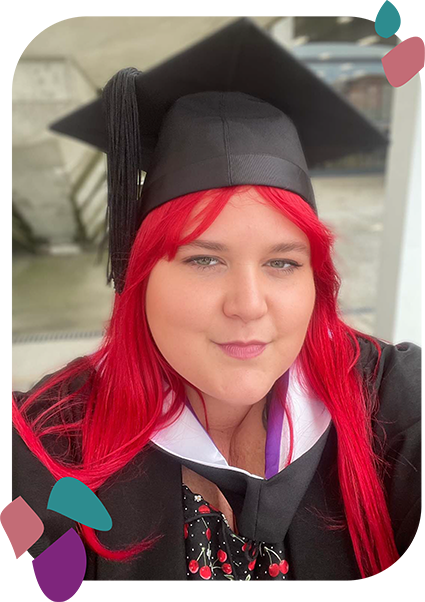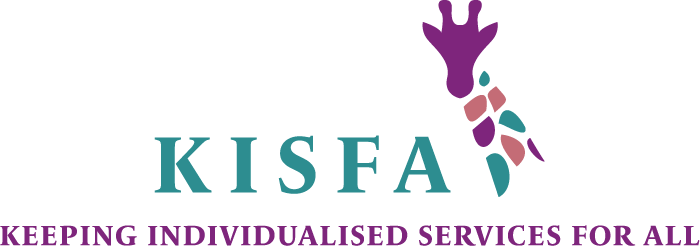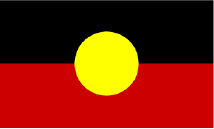About Us

Emma’s Story
After working in community services for 16 years, Emma took the leap into further study after identifying gaps in the support she was observing in the mental health sector. Having now completed her Master of Counselling, Emma established Keeping Individual Services For All or KISFA in order to provide quality mental health intervention to clients of any age, background or experiences.
Emma has engaged in training under the Emotions Clinic Australia in supporting people with Autism in accessing mental health support. She is deeply committed to employing a holistic approach, customising support to meet the unique needs of her clients, thereby ensuring mental health services are accessible to everyone.
KISFA uses a variety of evidence-based modalities including Cognitive Behavioural Therapy and Acceptance and Commitment Therapy to support clients experiencing anxiety, depression, emotional dysregulation, addiction issues, trauma, abuse and more.
FAQ’s
Frequently Asked Questions about KISFA
How do I know if I need counselling?
Having sessions with a counsellor can provide you with support in gaining clarity around issues you are experiencing, identifying and changing patterns that you feel are problematic, struggles you are experiencing with work, untangling complex relationships, receiving support during a crisis or if you are wanting to go on a journey of self-discovery and development. It could be that friends, family and those who care about you have recommended you see a counsellor, or that you have recognised the need yourself.
What happens in a counselling session?
There is no one size fits all when it comes to counselling, meaning that every session is different. KISFA’s prides itself on individual interventions and the counsellor that you see will be highly trained in creating a safe environment, listening and reflecting so you are able to explore what has brought you to counselling. Some of the topics discussed in a session could include your thoughts and feelings, aspirations, regrets, memories, dreams, everyday events and processing the thoughts around your behaviour.
What kind of issues can counselling assist with?
- Anxiety, social anxiety, panic attacks, generalised anxiety
- Relationship issues including jealousy, divorce, break ups, loneliness, marital problems, societal expectations, discrimination, arguments, wedding stress.
- Depression including thoughts of suicide, low mood, withdrawing from society
- Low confidence or self esteem
- Sexual problems including pornography and sex addiction, loss of desire, infertility issues and impotence
- Trauma including accidents, sexual assault, attacks and other incidents
- Obsessive compulsive disorder
- Eating problems including anorexia, negative body image, bulimia and binge eating
- Substance misuse and addiction
- Grief/loss/bereavement
- Abuse including physical, sexual, emotional, financial and verbal
How do I start counselling with KISFA?
Go to our booking page and book in an initial session! You will be emailed an initial booking form to complete before the session so our counsellor can get to know you and what you are worried about before the session. If you have any questions or concerns you and email us on [email protected] or call us on 0487 503 927
What kinds of people seek counselling?
Counselling can be beneficial for families, teenagers, children, adults, couples and those in polyamorous relationships. You are welcomed at KISFA regardless of your sexual orientation, gender, culture, religion or belief system and everyone can befit from individualised mental health interventions.
How many counselling sessions will I need?
The number of sessions you require will be dependent on your own circumstances. Generally, we would recommend 6 sessions with a review at the 6th session for future planning. You are able to cease counselling at any time but would recommend talking to your counsellor about any issues or concerns you have, rather than just ceasing counselling.
What if I don’t like my counsellor or am not happy with the service?
If the counsellor you are seeing is not able to meet your needs, we can help to refer you on to another service. Not everyone is going to get along and our main focus is supporting people in getting the help they deserve. If you are not happy for the service for any reason please get in touch so we are able to explore your concerns.
How often will I need to see a counsellor?
We would recommend weekly session and moving on to fortnightly as progress is made. It is possible to have sessions more than once a week if required but we do recommend sufficient time between sessions so you are able to process the information to ensure the sessions remain beneficial and purposeful.
Do I need to get a GP referral?
No, you don’t need a GP or anyone else to refer you to a counsellor. You can book straight in with us. We are only able to see NDIS clients who are self-managed or plan managed. We are unable to currently see clients under mental health plans.
How much will my sessions cost?
An individual session runs for 50 minutes and costs $120
A relationship session runs for 80 minutes and costs $160


